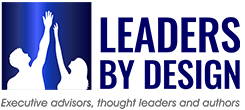
Onboarding Coaching
Transitioning into a new executive role is one of the most high-stakes challenges in a leader’s career.
Whether you’re stepping into a C-suite position for the first time, moving laterally within your organization, or joining a new company altogether, the initial months are critical. Research shows that nearly 40% of new executives underperform or fail within the first 18 months—often due to avoidable missteps in strategy, stakeholder alignment, and cultural integration.
At this level, success demands more than tactical onboarding—it requires strategic foresight, emotional intelligence, and the ability to quickly read and respond to the nuances of your new environment.
Our onboarding coaching helps you clarify business imperatives, build trusted relationships with key stakeholders, and establish early wins without sacrificing long-term positioning. We serve as your strategic thought partner, providing confidential, objective guidance as you assess risks, communicate priorities, and cultivate executive presence in your new role.
In some cases, transitions are unplanned. Senior executives experiencing involuntary exits—whether through restructuring, board decisions, or acquisition—often face the job market for the first time in decades. Our onboarding services equip you with a personalized strategy that aligns with your professional values, leadership brand, and long-term goals. From navigating messaging to identifying high-value opportunities, we help you move forward with clarity, confidence, and purpose.
If you’re navigating a leadership transition—preparing for one—or guiding a key executive through one—contact us to start the conversation.
Client Experience
From Numbers to Nuance—How One CFO Used Empathy to Earn the CEO Seat
Challenge
When a respected CFO aspired to become CEO upon his predecessor’s retirement, the board had one major concern: could he lead people as effectively as he managed numbers? While his financial acumen was unquestioned, feedback from colleagues revealed a pattern of poor listening, abrupt communication, and emotional distance—behaviors that signaled a lack of empathy. In short, he was seen as technically brilliant but lacking in interpersonal effectiveness and empathy.
Coaching Approach
Engaged by the board, we conducted an in-depth leadership development process, including psychological assessments, 360-degree feedback, shadowing, and communication coaching. The goal: help the CFO build the relational skills essential for senior leadership.
Key Insight
The CFO realized he had equated empathy with weakness, shaped by an outdated model of masculinity. This breakthrough helped him reframe empathy as a leadership strength—and a requirement for effective CEO performance.
Intervention
Over the course of a year, he committed to change. He improved his listening, built authentic relationships across departments, and intentionally practiced humility and curiosity in conversations.
- Faced feedback directly and acknowledged his blind spots around listening and emotional presence
- Reframed empathy as a strategic leadership tool rather than a personal vulnerability
- Practiced intentional communication, including reflective listening and genuine dialogue across departments
- Committed to ongoing development, including continued coaching and post-promotion check-ins
Outcome
The board promoted him to CEO—with the condition that he continue coaching. He began his tenure with a company-wide listening tour and went on to serve five successful years, leading strong revenue growth and building a healthier, more engaged culture. Upon his retirement, he was praised for balancing financial discipline with a human-centered approach.
